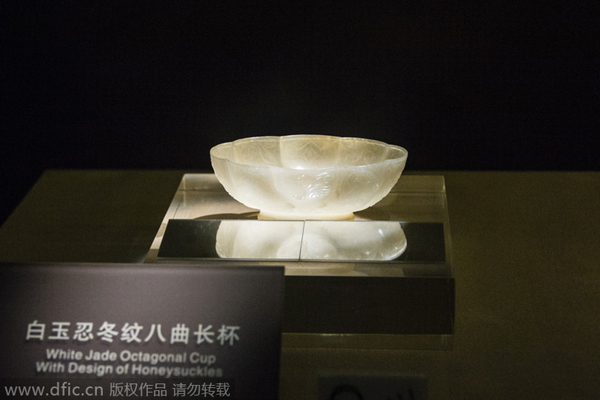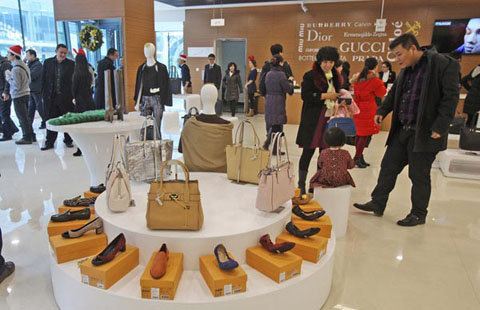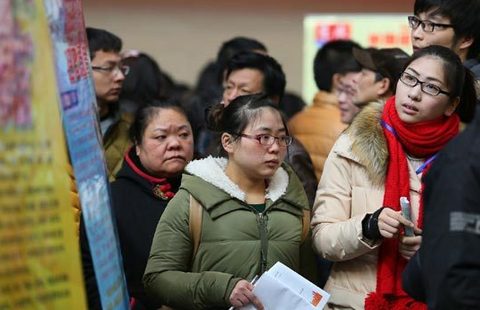Bengbu's jade industry on rocky road
By Zhu Lixin (China Daily) Updated: 2015-02-11 07:55
 |
|
A jade artifact displays at an exhibition in Xi'an, Northwest China's Shaanxi province, Nov 29, 2014. [Photo/IC] |
The downturn is affecting everyone, not just officials, according to Yang Guilong: "Many enterprises, like real estate developers, who are among the biggest buyers of jade products, are short of money nowadays. As a result, fewer and fewer of them are willing to spend money on jade, especially large decorative articles, than they were when money wasn't a problem."
Looking forward
While Yang said he has no idea how to cope with the current situation except to wait for the market to recover, others, such as Li, have made other plans.
Li has founded a museum containing almost every type of jade from around the world. Meanwhile, the Bengbu Jade Society often organizes events to popularize the stone and teach people how to recognize the different varieties in the hope it will spark interest and lead to potential buyers becoming consumers.
Li said he's currently looking at ways to expand his product catalog, so that both high-end and regular customers will be able to find items that suit both their taste and, just as important, their budget.
Related Story:
Dynasties and duplicates
Although Bengbu in Anhui province has no raw jade, it's still one of China's most important hubs for carving the stone.
The city's fame dates from 1958 when the State-owned Bengbu Jade Carving Factory was established and rapidly won business from customers in Hong Kong, Taiwan and countries in Southeast Asia with better-developed economies.
In a recent interview with China Daily, Fu Chengquan, a Bengbu jade merchant, explained why the factory was founded in the city. "During the Qing dynasty (1644-1911), there was a royal jade-carving workshop, and many of the craftsmen there came from Bengbu.
- China to show its IT power in CeBIT 2015
- Patent dispute threatens Xiaomi's India future
- Joint 5G standards to be set
- Chinese premier sees innovation countering slowdown
- Interest rate cut more likely
- Cheaper scheme launched for imported cars
- China's outstanding social financing up 14.3% in 2014
- Qualcommgets $975m antitrust fine

















